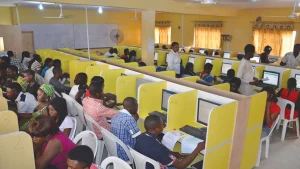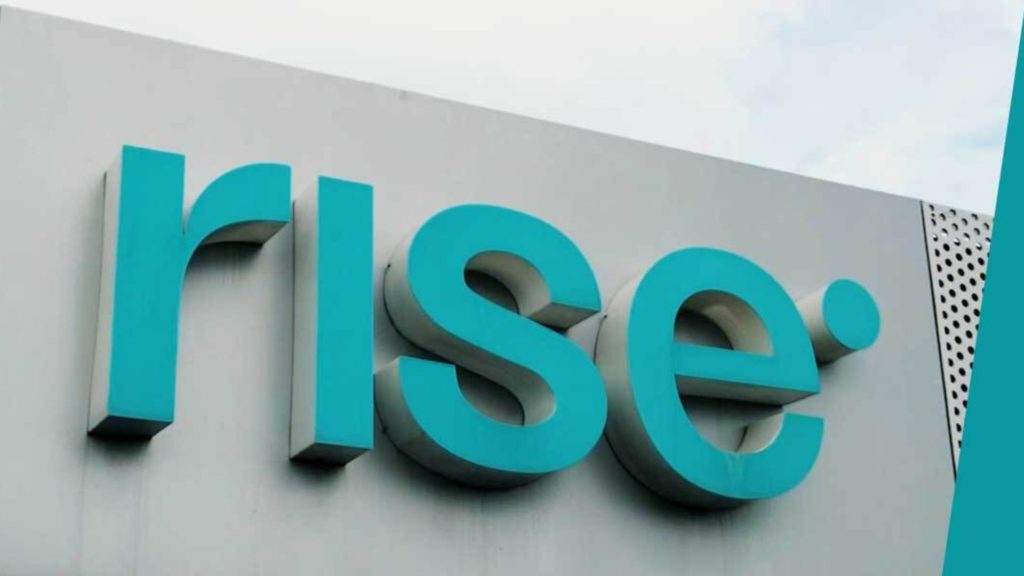54gene raised $45 million in three funding rounds to achieve the extraordinary for African genomics. But four years on, the company is shutting down in a cloud of controversy.
Genomics startup 54gene has initiated the winding down of its operations, sources connected to the company confirmed to TechCabal. The company started the process in July 2023. By September, its website was no longer available, and the PR agency that represented it for much of its existence told TechCabal they no longer work for 54gene. This disclosure comes after unconfirmed reports about the collapse of the company.
Founded in 2019, 54gene was co-founded by Dr. Abasi Ene-Obong, who helped the company raise $45 million across three funding rounds. The company set out to provide crucial genome information on Africans to help improve the drug discovery processes of global pharmaceutical companies. Per TechCrunch, “Less than 3% of genetic material used in global pharmaceutical research is from Africa…54gene has been at the forefront of bridging this divide in the global genomics market.”
But less than four years into its creation, the company fell into disarray, and Ene-Obong, the CEO, was replaced. Over the past year, 54gene has had three CEO changes, including Ron Chiarello, who became CEO in March 2023. Chiarello left the role in July.
“Unfortunately, the company could not continue to operate financially, and it began to wind down in July,” Chiarello told TechCabal. It is the first official confirmation from anyone connected to 54gene of the company’s closure. Three people familiar with the company’s shutdown process told TechCabal that 54gene is looking for buyers to take over its assets, including the company’s biobank—a collection of biological samples that could be especially useful for research. While company sources believe these assets are valuable, it is unclear how far along they are with the sale process.
However, legal issues will complicate the company’s closure amid claims that several creditors remain unpaid. Teresia Bost, the company’s former legal counsel and one-time interim CEO, sued 54gene for “discriminatory behaviour and creating a hostile work environment.”
Bost was named CEO after the dramatic exit of Dr. Abasi Ene-Obong in October 2022. While there are several versions of his resignation, his departure came on the heels of fundraising as 54gene returned to investors for more financing despite earning significant revenue from its Covid-19 testing facilities and raising $25 million a year earlier. Dr Abasi declined to answer questions regarding his exit but told TechCabal via email, “I would like to begin by stating that my resignation as CEO of 54gene was a difficult and emotional decision for me.”
Despite initial excitement at Teresia Bost’s appointment in 2021, things changed quickly. “Teresia is a well-rounded executive with a depth of experience in the global pharmaceutical and biotech industry,” 54gene said in a statement at the time of her appointment. But Bost left the position five months later. According to Law360, a legal trade publication, Bost alleges that Tobi Oke, one of the company’s investors, “would scream at her on video and phone meetings, degrading and humiliating her, and falsely criticized both her work product and legal work.” Tobi Oke declined to comment. She is suing five company associates at a New Jersey court in the U.S.
Chiarello, who took over from Bost, is also a defendant in the suit. “When companies fail, no matter how altruistic their purpose, disagreements arise,” Chiarello told TechCabal. “It’s my hope that when the dust settles, the idea behind 54gene continues in some way for the health benefit of Nigerians, all Africans, and people globally.”
‘Questionable spending by former executives’
In her complaint, Bost said her salary was slashed from $330,000 to $175,999, which she alleged violates “her written agreement and represents a breach of contract because she was still performing all her duties.” She also claimed she was told the company could be insolvent by September 2022 because of questionable spending by the company’s former executives.
Several sources with extensive knowledge of the genome medical research industry and 54gene’s business model admitted that genomics is capital-intensive. “Sequencing equipment for genomics is expensive, and there are other costs like storing data in the cloud. The costs add up quickly,” said one of the people. Two sources with first-hand knowledge of 54Gene’s business said that it still owes money to companies that supplied some of its medical equipment. “Neither I nor Syndicate Bio can comment on any speculation surrounding the monies owed to 54gene vendors,” Dr Abasi told TechCabal via email.
In 2021, 54gene branched into diagnostics and set up Seven River Labs because of its success with COVID testing. Two sources said the company brought in at least $20 million in revenue from covid testing. “The kind of spending they did to launch Seven River Labs was unreal,” one person with knowledge of the business said. “They spent money without considering the dynamics of the diagnostics space.”
According to a 2021 report by Technext, “7RiverLabs sample collection centres are already open in Lagos, Abuja, Kano and Port Harcourt. These collection centres boast over 100 employees.” Another report said Seven River Labs poached stars from global companies and invested in expensive equipment. “Despite all of the investment in diagnostics, the expected returns did not materialize.”
By mid-2022, the company ran out of money, slashed salaries and instituted layoffs; plans to raise new external funding initially collapsed. While there are varying versions of events, it is clear that the company struggled to stay on track with its mission and that internal friction could not be resolved.
Nevertheless, industry followers believe 54Gene’s failure will have consequences. “When one of the biggest flagship companies that have raised the most money in a sector has its value collapse overnight, global investors will hesitate about funding the sector,” said one health tech founder who asked to remain anonymous so they could speak freely.
“That’s the reality. One of the flagship companies in our sectors went under rapidly and unceremoniously.”



















